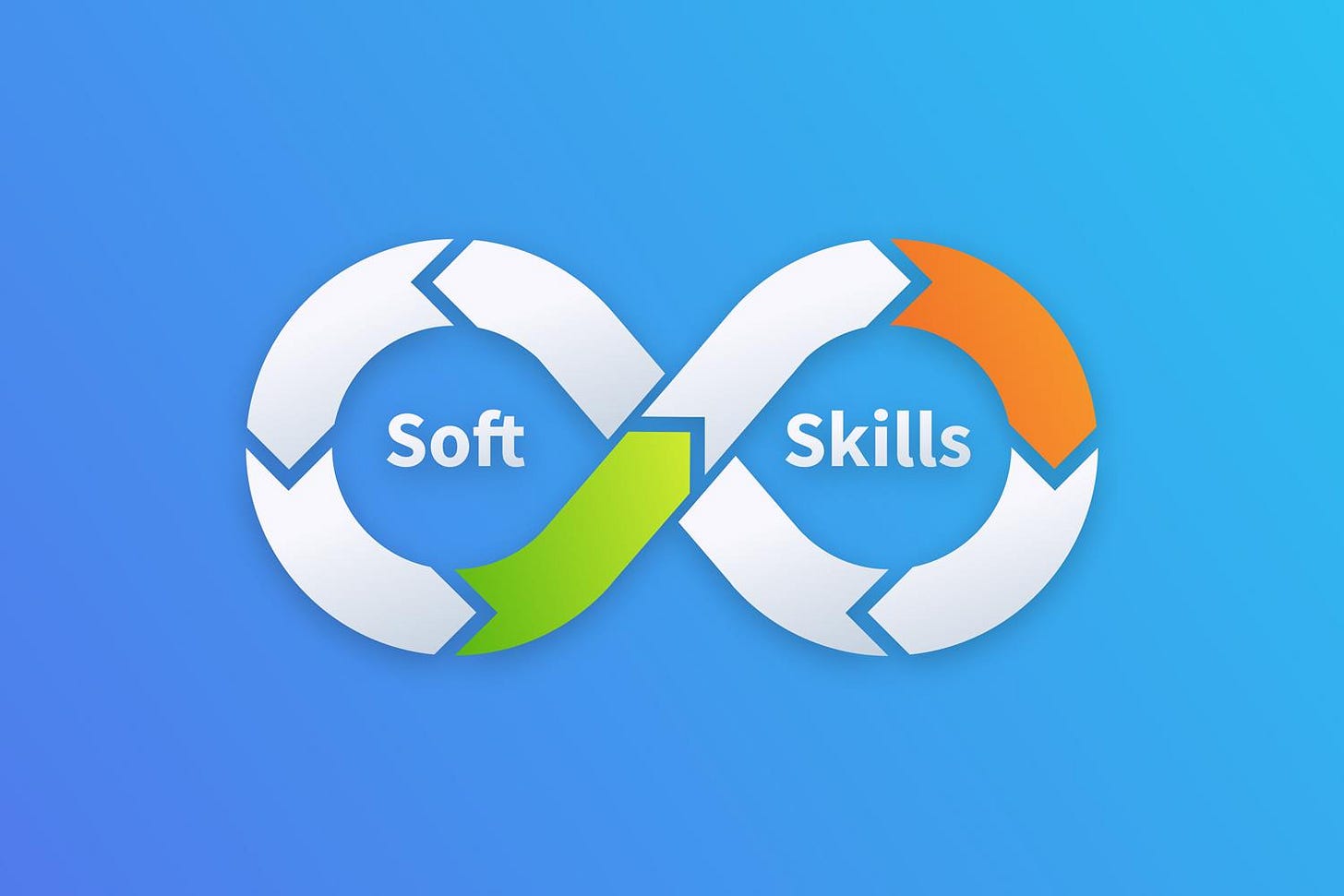7 Soft Skills Every Successful Product Manager Needs
Being a Product Manager is a complex role that demands more than just technical expertise.
While technical skills are crucial, soft skills are equally vital. Soft skills enable Product Managers to navigate challenges, build strong teams, and create products that meet customer needs.
Mastering soft skills is essential for career advancement, team leadership, and gaining influence within an organization. A well-rounded Product Manager combines technical knowledge with strong interpersonal abilities.
In the early stages of a Product Manager's career, the focus is on executing product-focused tasks such as QA, interacting with engineers on a day-to-day basis, collaborating with marketing, A/B testing, gathering customer data, and conducting market research.
As you progress to a Senior Product Manager or Product Lead, your role will shift from execution to influence, building stronger relationships with colleagues. While execution remains part of your responsibilities, you'll increasingly concentrate on leadership, team development, and securing support for your decisions.
At the leadership level, as a Group PM, Head of Product, or Chief Product Officer, working with people becomes paramount. You'll be expected to lead teams, empower others, make significant product decisions, and communicate effectively across the organization—tasks that require refined soft skills.
At every stage of your product management career, soft skills enhance your performance. As you advance, these skills become increasingly important, as working effectively with people becomes a greater priority.
The 7 Most Important Soft Skills for Product Managers
We've identified six crucial soft skills every Product Manager should master. These essential skills will help you become a top leader, respected by your team:
1: Critical Thinking & Analytical Skills: A basic understanding of how to read data and interpret data accurately is a necessary skill to have.
"I don't care if they know how to write SQL today or how to use pivot tables or any other analytics tools. I'd rather they know the right questions to ask when looking at data. If they're smart, I trust they'll learn whatever tools they need on the job."
Andy Jih, PM at Stripe, former Director of Product at Remedy Labs, ex-Zynga
2: Communicating Effectively: Effective communication lies at the root of all successful product managers because nothing gets done without communication. From the very beginning, a product relies upon effective communication to go from an idea to a full-blown reality.
As a product manager, communication will be a part of every single moment of every day. From communicating with upper management to communicating with users, the product manager is in charge of delivering the right message to the right group of people.
3: Collaboration: Collaboration is another skill essential to a well-functioning PM. While there are plenty of other jobs where minimal collaboration is necessary, PMs collaborate extensively daily. Remember that the PM is essentially a "hub" role where they connect a team of different disciplines.
4: Leading without authority: While many other leadership positions (e.g., VP of sales) have some direct reporting authority over their team members, PMs will often have to lead without any formal reporting structure authority (e.g., the engineers don't report to the PM). As a result, PMs need to earn the respect of the team members they work with and earn influence through their actions that will enable them to successfully lead a team.
5: Great Organization Skills: As a product manager, you will find you often have to shift rapidly between a strategic and tactical focus — discussing your product at a high level with an industry analyst or your CEO in the morning and then jumping right into a detailed discussion of feature priority with your developers after lunch.
To be effective in both of these contexts, you need to stay organized at all times, to keep your strategic, high-level information handy at all times, as well as up-to-date information about features and other product details.
6: Learn to Say No: As a product manager, you have to say no to stakeholders, a lot. But saying no is a skill. There are still relationships to maintain, customers to satisfy, and company roadmaps to consider. If it’s not done well, saying no can mean losing a customer or even the company itself. Saying no as a product manager requires strategic thinking — so it’s usually not as simple as just blurting it out.
7: Empathy: It’s an essential skill for product managers. Empathy is a way of understanding your customers’ underlying needs and motivations. Empathy can lead you to build a better product and then explain to the world why you’re building it. It also helps deal with the team and the internal stakeholders.


